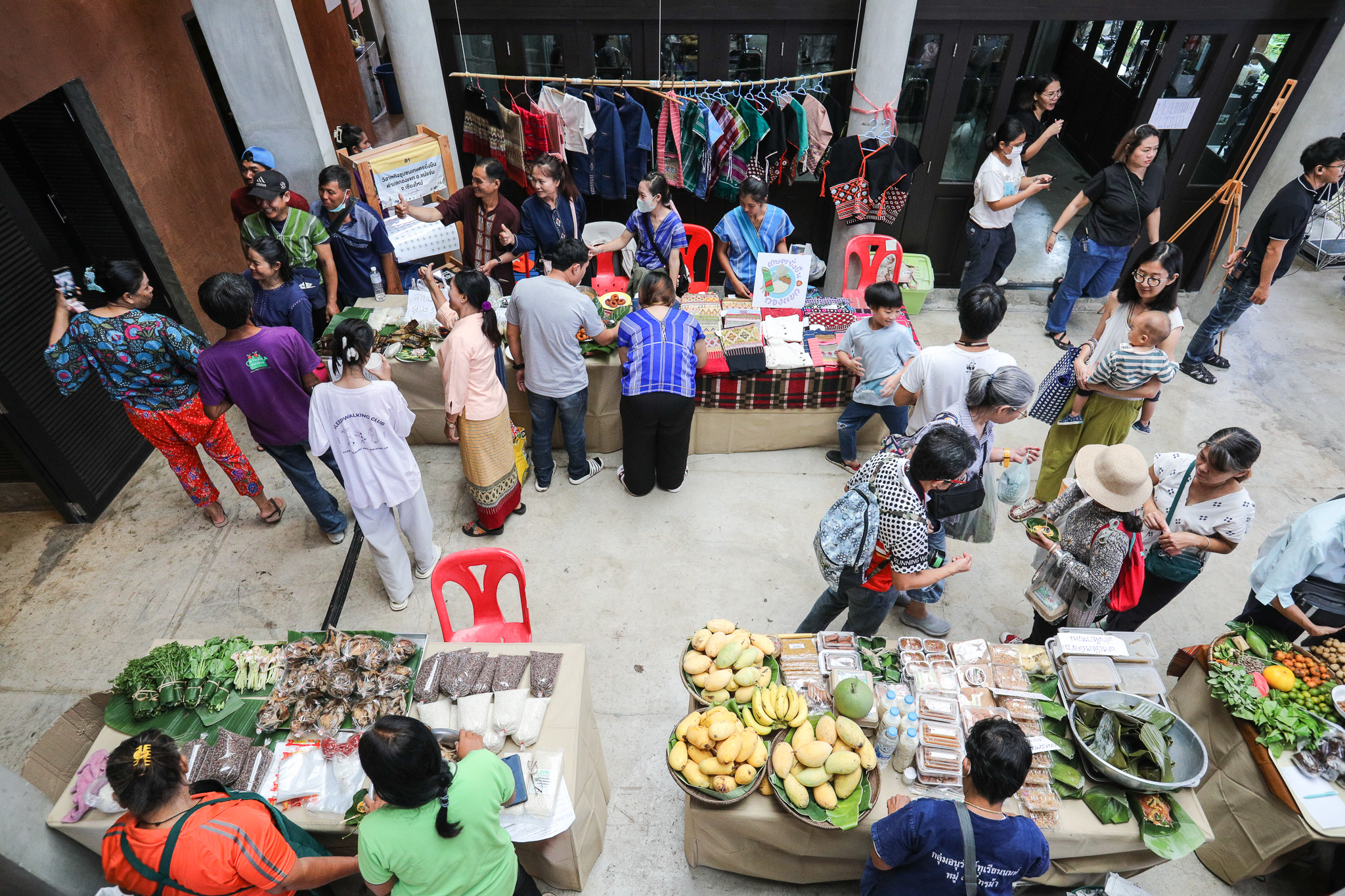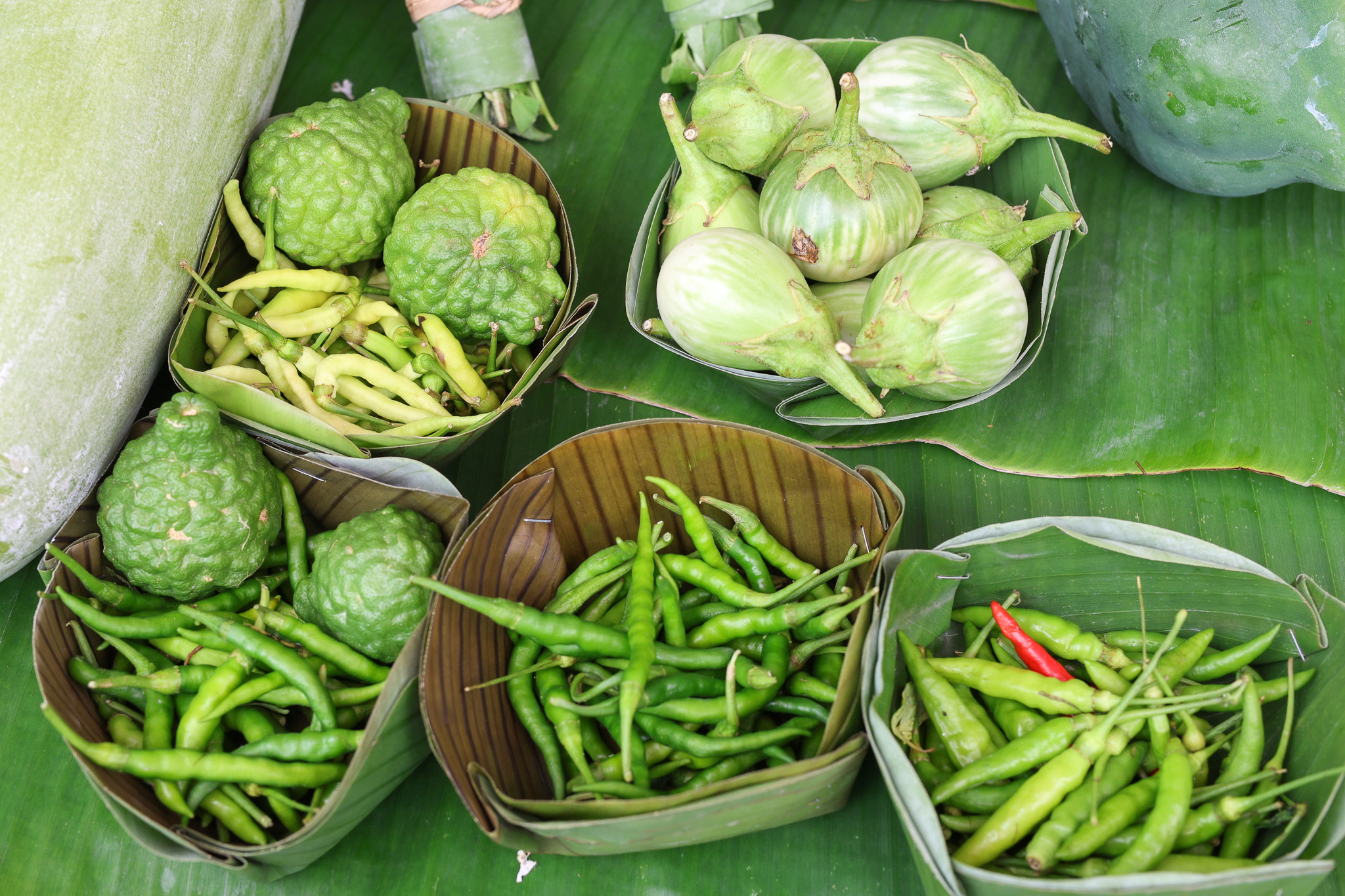The WWF is run at a local level by the following offices...
- WWF Global
- Adria
- Argentina
- Armenia
- AsiaPacific
- Australia
- Austria
- Azerbaijan
- Belgium
- Bhutan
- Bolivia
- Borneo
- Brazil
- Bulgaria
- Cambodia
- Cameroon
- Canada
- Caucasus
- Central African Republic
- Central America
- Chile
- China
- Colombia
- Croatia
- Democratic Republic of the Congo
- Denmark
- Ecuador
- European Policy Office
- Finland
Promoting sustainable food systems at the 8th City Farm Festival
11 September 2023
The 8th City Farm Festival held on the 10th of September 2023 was co-organised by WWF Thailand and the Sustainable Agriculture Foundation (Thailand), along with various network partners.
With various activities, workshops, and market zones the festival was a place that connected consumers to producers, while becoming a space which raised awareness on food security and a sustainable food system.
The event was divided into different zones, each with its own function. This included stages for talks/seminars and discussions, markets zones, and areas for various workshops that provided knowledge to consumers in attendance. Workshops included methods for designing community gardens, composting techniques, pest and disease control methods, and seasonal planting and care.

These workshops aimed to highlight opportunities and encourage communities to focus on building sustainable food systems. They also highlighted the importance of organic agriculture. This was achieved to emphasizing the importance of growing chemical-free vegetables to reduce expenses, create additional income through the sale of fresh and processed vegetables for farmers, while helping address food waste problems.

The day concluded with a stand out activity were taught how to make delightful homemade rice flour pizza chemical-free vegetables like watercress and eggplant. It demonstrated that local rice varieties could be creatively transformed into many dishes beyond simple curry and rice

The market zone facilitated direct communication and connection between producers and consumers. This connection is vital to value chain development and for the improvement of smallholder farmers’ livelihoods. Market places is this are therefore important to the success sustainable agriculture and sustainable food systems. Without green markets places neither can be achieved at a large scale.
The businesses present at the market zone in the Festival also demonstrated that the green businesses ran by younger generation could generate profits beyond money, contributing to community development, environmental conservation, and adaptation to the changing global environment.


Other than educational purposes and market zones, the Festival was designed with other useful sections so that people of all ages would be able to participate. This included a relaxation/therapy areas for adults and a garden area for children with fun kitchen based activities.
With various activities, workshops, and market zones the festival was a place that connected consumers to producers, while becoming a space which raised awareness on food security and a sustainable food system.
The event was divided into different zones, each with its own function. This included stages for talks/seminars and discussions, markets zones, and areas for various workshops that provided knowledge to consumers in attendance. Workshops included methods for designing community gardens, composting techniques, pest and disease control methods, and seasonal planting and care.

These workshops aimed to highlight opportunities and encourage communities to focus on building sustainable food systems. They also highlighted the importance of organic agriculture. This was achieved to emphasizing the importance of growing chemical-free vegetables to reduce expenses, create additional income through the sale of fresh and processed vegetables for farmers, while helping address food waste problems.

The day concluded with a stand out activity were taught how to make delightful homemade rice flour pizza chemical-free vegetables like watercress and eggplant. It demonstrated that local rice varieties could be creatively transformed into many dishes beyond simple curry and rice

The market zone facilitated direct communication and connection between producers and consumers. This connection is vital to value chain development and for the improvement of smallholder farmers’ livelihoods. Market places is this are therefore important to the success sustainable agriculture and sustainable food systems. Without green markets places neither can be achieved at a large scale.
The businesses present at the market zone in the Festival also demonstrated that the green businesses ran by younger generation could generate profits beyond money, contributing to community development, environmental conservation, and adaptation to the changing global environment.


Other than educational purposes and market zones, the Festival was designed with other useful sections so that people of all ages would be able to participate. This included a relaxation/therapy areas for adults and a garden area for children with fun kitchen based activities.